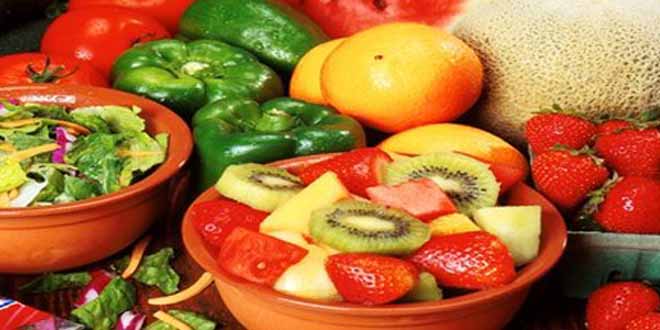
Healthy Eating as You Age
There’s no denying it: our bodies change as we age. We start to lose hair on our heads, muscles diminish, and either we get fatter or we lose so much weight from lack of appetite that we become so skinny. When we become senior citizens, our nutritional needs change and differ from that of teenagers, and even middle-aged adults.
Age related changes can affect how your body processes food, which in turn influences your dietary needs and affects your appetite. For adults over age 50, the benefits of healthy eating include increased mental alertness, resistance to illness and disease, higher energy levels, faster recuperation times, and better management of chronic health problems. As we age, eating well can also be the key to a positive outlook and staying emotionally balanced. But healthy eating doesn’t have to be about dieting and sacrifice. Whatever, your age, eating well should be about fresh colorful food, enjoying some creativity in the kitchen, and most importantly having company.
What Happens to Our Bodies as We Age?
Here are the changes your body goes through with age:
Metabolism Slows Down
Our metabolisms slow down naturally as we age, but it slows down faster when we don’t exercise. When your metabolism slows down, your body doesn’t burn calories as much as it should, which means you need to eat less to stay at a healthy weight. For that matter, your foods need to be nutrient-rich as much as possible. Most women who are moderately active require 1,800 calories per day, whereas moderately active men need 2,300 calories a day. If you are sedentary, meaning you have little to no activity level then you need much lower amount of calories.
Digestive System Changes
As you get older, your body produces less of fluids that it needs to process food in your digestive system. These changes can make it harder for your body to absorb important nutrients such as folic acid and vitamins B6 and B12.
Muscle Starts Diminishing
As you age, you start losing muscles, and every 10 years you lose approximately 8 percent of muscle mass. This is mostly due to decreased protein intake.
Appetite Changes
As you get older, you are more susceptible to diseases and organ damages and would most likely have to take medications for health conditions. Some of these medications can cause side effects such as a lack of appetite or upset stomach, which can lead to poor nutritional intake.
Emotional Changes
Seniors who feel depressed or lonely often lose interest in eating. However, the other extreme is that emotional issues may cause some people to eat more and gain unwanted weight.
Plan for the Seniors
A healthy diet with important nutrients can help protect against potential health problems that are common with senior citizens, like constipation, heart problems, diabetes, high blood pressure, and high cholesterol. Nutritious foods can also help you maintain a healthy weight and improve your energy level.
So here is what you should do:
- Make half of your plate fruits and vegetables. Good fruits and vegetables include beans, strawberries, beets, apples, cranberries, sweet potato, avocados, broccoli, spinach and cherries.
- Make at least half of your carbohydrates as whole grains. Whole grains are fiber and nutrient rich that will help your digestion and protect your heart. Choose brown rice, whole wheat bread, and whole grain cereals.
- Avoid too much sodium (salt) in foods and choose foods that have lower numbers of sodium content because too much salt can increase your blood pressure.
- Avoid red meat such as mutton and beef because they lead to high cholesterol and high blood pressure.
- Choose healthy fats found in seeds, nuts, avocados, fatty fish and make better choices of oil to use in cooking, such as olive oil or canola oil
- Drink lots of water to stay hydrated and avoid caffeinated drinks. You can even eat foods that are high in water content such as cucumbers, watermelon, grapes, oranges and strawberries.
- Pack in your protein. Protein is necessary to avoid sarcopenia as we age, which is when your muscles start losing its form. Consume beans, eggs, chicken and fish, and nuts. Quinoa are tiny seeds that pack a lot of protein.
- Make sure you are not deficient in calcium and vitamin D. These are needed to protect your bones, so eat up as much calcium-rich foods like low fat dairy products, eggs, tuna and salmon. You can always take calcium and vitamin D supplements if you are severely deficient in these vitamins.
- B12 is another vitamin that you must have enough of. Vitamin B12 is good for avoiding memory loss, Alzheimer’s disease, boosting mood, energy, concentration and the immune system. It is also beneficial in slowing the aging process. It’s also good for the heart and has a whole host of other uses. Take supplements if you need to, but it can be found in fish and dairy products.
Make sure you also stay active. Even if its gardening or going for a short walk in the park, make sure you are burning calories so that you can improve your appetite. To avoid the muscle loss, try doing very light weight lifting. You can get dumbbells that are as light as 2.5 kg and carry them as you walk. Keep your joints healthy by staying active.

